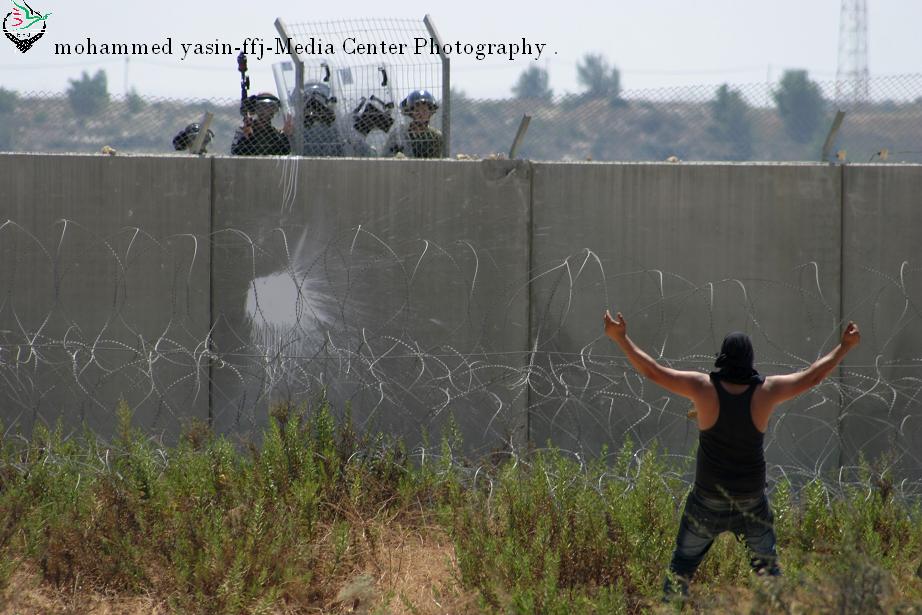Tag: Bil’in
-
Photo Essay: Ongoing resistance in Bil’in
2nd August 2013 | Friends of Freedom and Justice | Bil’in, Occupied Palestine Dozens of Palestinian, international and Israeli activists participated at today’s demonstration against the apartheid wall and land annexation organised by the Popular Committee Against the Wall and Settlements in Bil’in. The demonstration was dedicated to the Palestinian Bedouins in Al Nakab and…
-
Two people injured in Bil’in weekly march
26th July 2013 | Friends of Freedom and Justice | Bil’in, Occupied Palestine This afternoon the journalist Haitham al-Khatib 37 years old was hit by a tear gas canister in the back after being targeted by the Israeli soldiers, a 18 years old Mahmoud Samara also got injured by a rubber bullet in the leg,…
-
Struggle against apartheid wall continues in Bil’in
21st June 2013 | International Solidarity Movement, Ramallah Team | Bil’in, Occupied Palestine Following the Friday prayers on June 21, residents of Bil’in accompanied by a contingent of international supporters gathered for the village’s weekly demonstration against the apartheid wall. The wall has cut the village off from Palestinian land that is now being used…

